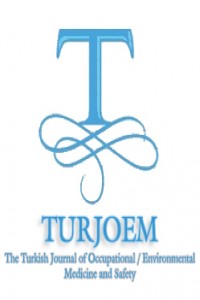Abstract
The acute toxic
effects of esbiothrin, a synthetic piretroid pesticide contaminating aquatic
ecosystems was investigated on fish in the present study. Guppy (Poecilia
reticulata), standart species for bioassays according to OECD, was selected as
a test animal for determination of the acute toxicity of esbiothrin.
Experiments were conducted in two stages as range finding test and main test.
In each experiment, six different esbiothrin concentrations and two control
groups have been used. The experiment has been carried out with static bioassay
method on three series during 96 h. Datas were evaluated using the U.S. E.P.A.
LC50 computer program based on Finney’s Probit Analysis Method. According to
bioassay results 24, 48, 72 and 96 h LC50 (95% confidence limits) values for
guppy exposed to esbiothrin [(RS)-3-allyl-2-methyl-4-oxocyclopent-2-enyl (1R,
3R)-2,2 dimethyl -3-(2-methylprop-1-enyl)cyclopropanecarboxylate] were 173.57
(137.10-229.86) µg/L, 129.83 (98.33-162.27) µg/L, 106.71 (79.59-132.76) µg/L,
91.55 (67.19-115.78) µg/L, respectively.
It has been
observed that, contrary to control group, guppy exposed to different
concentrations of esbiothrin were swimmed upside down, crowded at the water
surface of the aquarium, some of them moved rapidly or slowly before death, and
showed abnormal swimming. After death, some fish had swollen abdomen and
hemorrhage at the base of the fins.
Esbiothrin is
found extremely toxic to guppy, a standard bioassay organism.
References
- Aysel Çağlan KARASU BENLI, Aysegül ÖCAL
- Gazi University, Institute of Natural and Applied Sciences, Department of Environmental Sciences, Teknikokullar, Ankara, TURKEY Ministry of Environment and Urban Planning, Ankara, TURKEY
Abstract
References
- Aysel Çağlan KARASU BENLI, Aysegül ÖCAL
- Gazi University, Institute of Natural and Applied Sciences, Department of Environmental Sciences, Teknikokullar, Ankara, TURKEY Ministry of Environment and Urban Planning, Ankara, TURKEY
Details
| Journal Section | Articles |
|---|---|
| Authors | |
| Publication Date | February 16, 2017 |
| Published in Issue | Year 2017 Volume: Volume 2 Issue: İssue 1 (1) - 2.İnternational Congress Of Forensic Toxicology |


